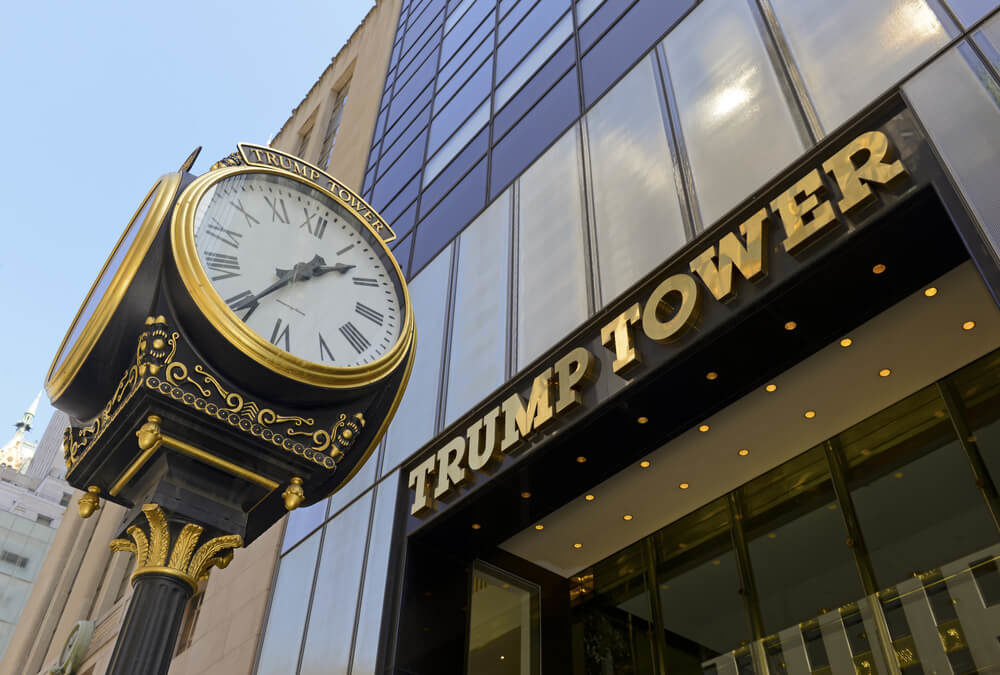Iranian presidential adviser Hesameddin Ashena posted a rather cryptic tweet, signalling Tehran’s intent in seeking revenge for the assassination of one of its top generals by targeting the properties of U.S. President Donald Trump.
The tweet was without words and simply provided a link to a Forbes article about Trump’s net worth, including all of the properties he owns or is involved with by name.
— Hesameddin Ashena (@hesamodin1) January 5, 2020
There are Trump Organization properties in 11 countries outside the United States, including Canada, Dubai, India, Indonesia, Ireland, the Philippines, Scotland, South Korea, St. Martin, Turkey and Uruguay. The Forbes article also lists 19 Trump properties, owned by the Trump Organization, most of which are in the U.S.
Most of Trump’s international properties are owned by other people with Trump Organization branding and management.
“Iran will look for the most opportune chance to strike back in a way that hurts President Trump personally,” Brookings Institution Iran expert Suzanne Maloney said on a recent Lawfare podcast. “I will assume security around any Trump property is enhanced.”
In a separate tweet, Ashena said Iran doesn’t have a problem with the American people, but rather just Trump.
We have ZERO problems with the American people. We even achieved deals with previous US administrations. Our sole problem is Trump. In the event of war, it is he who will bear full responsibility.
— Hesameddin Ashena (@hesamodin1) January 5, 2020
An attack on a Trump property in the U.S. would be seen as an act of terrorism, which would likely trigger a military response, making it less likely than an attack on one abroad. Attacking a property in the U.S. also would likely drum up domestic support for the president and help his reelection chances.
However, an attack on a property abroad wouldn’t be a violation of U.S. sovereignty.
In addition to conventional military weapons like missiles and submarines, Iran has strong cyberwarfare capabilities, which could narrowly target individual organizations or disable power grids and other infrastructure.

A rendering of the U.S. drone attack on the convoy of the Iranian Gen. Qassem Soleimani at the Baghdad International Airport, Iraq.
Gen. Qassem Soleimani, head of Iran’s elite Quds Forces, was assassinated by a U.S. drone attack in Iraq, and Iran has sworn revenge. Hundreds of thousands of people filled the streets Monday in Iran in a funeral march in the capital of Tehran.
Sleimani’s daughter Zeinab told the crowd “families of U.S. soldiers in the Middle East will spend their days waiting for the death of their children.”
Trump of course has taken to Twitter to threaten “disproportionate response,” including the destruction of Iranian cultural sites, which is a war crime under international law.
Iran is talking very boldly about targeting certain USA assets as revenge for our ridding the world of their terrorist leader who had just killed an American, & badly wounded many others, not to mention all of the people he had killed over his lifetime, including recently….
— Donald J. Trump (@realDonaldTrump) January 4, 2020
….targeted 52 Iranian sites (representing the 52 American hostages taken by Iran many years ago), some at a very high level & important to Iran & the Iranian culture, and those targets, and Iran itself, WILL BE HIT VERY FAST AND VERY HARD. The USA wants no more threats!
— Donald J. Trump (@realDonaldTrump) January 4, 2020
The Pentagon rejected Trump’s threat of such action this week. When asked if the U.S. would attack cultural sites, Joints Chiefs of Staff Chairman Gen. Mark Milley said, “We will follow the laws of armed conflict.”
When asked if his response was a more direct “no,” because such an attack would constitute a war crime under those laws, he replied, “That’s the laws of armed conflict.”
The laws of armed conflict as part of international law govern relationships between countries, and are meant to regulate armed conflict.
Washington Institute security expert and Iraq/KRG analyst Michael Knights said cultural targets such as Trump mentioned aren’t even included on strike lists by the U.S., so there’s no way they’d be targeted.
I know everyone is having fun being outraged, but there would not be "cultural" targets on any US target list. Such sites are on a "no-strike list" and/or a "restricted target list" including all UNESCO sites and many others, incl mosques, schools, etc.
— Michael Knights (@Mikeknightsiraq) January 5, 2020
I would treat this the same as when POTUS has occasionally opined that we will do X, only to be told we can't / don't. In this case, I don't think he even meant material icons or whatever. I think he was talking about people.
— Michael Knights (@Mikeknightsiraq) January 5, 2020
There is an interesting case study back in 1990s with statues in Baghdad that were continually nominated to the target nomination board across different strikes in different years, never to be approved. Crossed Swords among them if I recall correctly.
— Michael Knights (@Mikeknightsiraq) January 5, 2020




